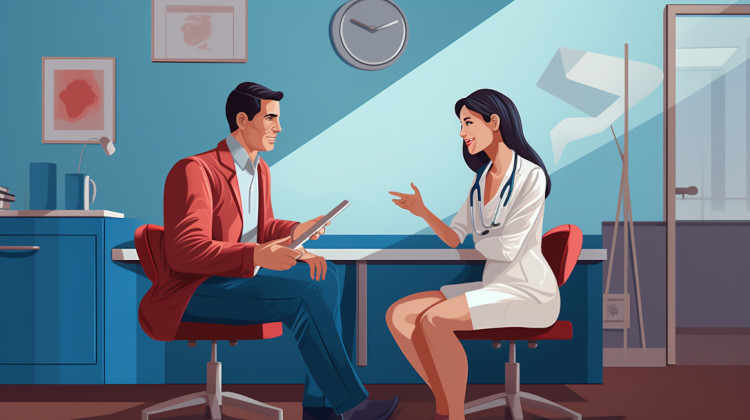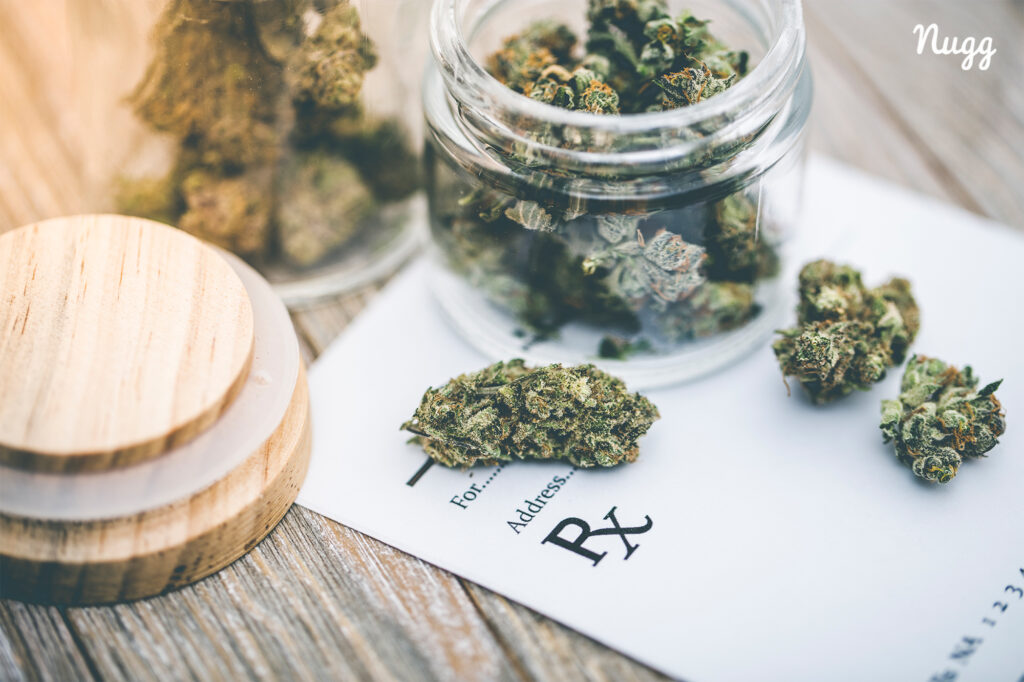
Bipolar disorder is a mental health condition that affects mood, energy, and the ability to think clearly. Unusual mood swings between states of mania, hypomania, and depression characterize bipolar disorder. Sometimes called bipolar spectrum disorder, it consists of a spectrum of signs and symptoms.
The history of bipolar disorder can be tracked through the editions of the DSM. In the 1952 DSM-I, bipolar disorder professionals considered it a psychotic disorder, and later, in the 1968 DSM-II, professionals classified it as an Affective Disorder, called manic-depressive illness, which was split into three types: manic, depressed, and circular. In the 1980 DSM-III, professionals defined manic and depressive “episodes” of what became the current bipolar disorder diagnosis. The DSM-III also classified unipolar (depression) and bipolar depression as separate disorders. Hypomania was first mentioned in the DSM-III, the diagnosis for individuals experiencing less severe mania.
The 1994 DSM-IV introduced Mixed Episodes, which were diagnosed if the individual met the criteria for major depressive disorder and a manic episode. In 2013, the most recent DSM-V was published, clarifying the diagnostic criteria for Bipolar I and Bipolar II disorders.1
The average age of onset for bipolar disorder is 25. In 2019, an estimated 40 million individuals worldwide had a bipolar disorder diagnosis.
In the Spring of 2022, researchers at the University of New South Wales discovered brain changes in early adolescents at high risk for developing bipolar disorder. This finding could lead to early detection of the condition and significantly improve quality of life.2
What Causes Bipolar Disorder?
Like many mood disorders, experts are unable to determine a single cause for bipolar disorder. Still, they theorize that certain factors may play a part in its development:
- Genetics: Bipolar disorder is highly inheritable, but having a family history of the condition does not guarantee development.3
- Brain structure and function: Although diagnosis is not based on a brain scan, researchers have found differences in the brains of people with bipolar disorder compared to people without any other mental illness.
- Stress: Experiencing a stressful or traumatic event can trigger manic or depressive symptoms.
Bipolar Disorder Signs & Symptoms
Bipolar disorder involves periods of abnormally extreme emotions, called episodes, lasting for days or weeks.
If you have a manic episode, you may experience one or more of the following symptoms:
- Feeling extremely upbeat, high, or elated
- Feeling jumpy, irritable, or touchy
- Increased energy
- Decreased need for sleep
- Talking fast about a lot of ideas
- Racing thoughts
- Poor decision-making
- Feeling unusually important or powerful
If you have a depressive episode, you may experience one or more of the following symptoms:
- Feeling extremely down, sad, or anxious
- Feeling slow or restless
- Feeling irritable (in children and teens)
- Difficulty falling asleep or oversleeping
- Slow speech or inability to put thoughts together
- Trouble with concentration or decision-making
- Low energy or interest in most activities
- Feeling hopeless or worthless
- Thoughts of death or suicide
Sometimes, manic and depressive symptoms are felt subsequently or at the same time. Experts look at the pattern and severity of symptoms to diagnose someone with one of the four types of bipolar disorder:
- Bipolar I Disorder: A person who has experienced one or more episodes of mania. Although most will have experienced it, a depressive episode is not required for diagnosis.
- Bipolar II Disorder: A person has never experienced a full manic episode but may have felt hypomania. Hypomanic episodes alternate with depressive episodes.
- Cyclothymia: A persistently unstable mood state characterized by highs and lows less extreme than those in bipolar I or II disorder. In people with cyclothymia, this state persists for at least two years.
- Other or unspecified bipolar disorder: This is diagnosed when a person experiences significant mood changes that do not fit the criteria for bipolar I, II, or cyclothymia. Drugs, alcohol, or a medical condition could potentially cause some conditions.
Sometimes, bipolar episodes can involve psychotic symptoms, like hallucinations or psychosis. Many people with bipolar disorder also have other conditions like anxiety, eating, and substance abuse disorders. Bipolar disorder can affect all aspects of life and cannot be prevented, but it can be managed with an effective treatment plan.
A treatment plan for bipolar disorder consists of a combination of psychotherapy, medication, self-management, and complementary health approaches like exercise and meditation. Experts recommend avoiding drugs and alcohol.
Seek help immediately if you are in distress or thinking about hurting yourself. Call 988 to reach the Suicide and Crisis Lifeline, available 24/7 in the United States.
Can Cannabis Help Alleviate Symptoms of Bipolar Disorder?

The current recommendation for physicians is to refrain from prescribing medical cannabis for bipolar disorder because there isn't sufficient evidence that it has a medical benefit. A 2015 review demonstrated that cannabis use was significantly associated with early-onset bipolar disorder.4 However, a 2019 scientific review found that 24% of people with bipolar disorder use cannabis.5
- A two-year observational study of people with bipolar disorder included current cannabis users, previous users, and never users. When experiencing a bipolar episode, the previous and never users had better outcomes than the current users. Researchers concluded that continued cannabis use is associated with a higher risk of episode recurrence.6
- CBD was well tolerated and persistently exerted an antidepressant response in multiple animal studies. Still, this effect has not been replicated in humans with clinically significant results.7 Research on CBD has also demonstrated the potential antipsychotic and antianxiety properties.8
- The National Institute of Drug Abuse sought to determine whether cannabis use impacted the mood of people with bipolar disorder compared to people without the condition. Their investigation showed that regular cannabis users with bipolar disorder experienced a short-term alleviation of symptoms within four hours of smoking. The participants had lower anger, tension, and depression scores and symptoms of mania.9
No clinical trials have primarily focused on cannabis and bipolar disorder or other mood disorders in humans, so further research is needed. However, illuminating both negative and positive outcomes could be said to be limited by the study methods and the inability to homogenize cannabis use among participants. CBD may have promise as a future therapy for bipolar disorder, but human studies are not far enough along.
Without solid evidence for or against cannabis for bipolar disorder, many medical practitioners will urge patients to who have bipolar disorder or who are at risk for other psychotic disorders to avoid using cannabis. For some individuals with bipolar disorder, cannabis use may lead to an increase in symptoms.10 If you do want to involve CBD in your treatment plan, make sure to work with your healthcare provider.
Non-intoxicating CBD products in oral form may be the best choice for someone with bipolar disorder. Look for CBD-only tinctures, capsules, teas, and edibles.
Legality and Doctor’s Recommendation
To determine if your state considers bipolar disorder a qualifying condition for medical cannabis, check out our Laws & Regulations section for the medical cannabis rules for your state.
If you find that your state recognizes bipolar disorder or its symptoms as a qualifying medical condition, you can seek a doctor’s recommendation to get your medical cannabis card in your state.
How NuggMD Can Help

NuggMD is the nation's leading medical cannabis technology platform, serving patients in over half of the states in the U.S. We’ve connected over 2,000,000 patients with their new medical cannabis doctors face-to-face via our state-of-the-art telemedicine platform.
We believe that every human being has the right to explore the benefits of medical cannabis and are fully committed to helping each patient explore all their options in their journey to wellness. For further information on whether you qualify for medical cannabis, select your state.
References
- Mason BL, Brown ES, Croarkin PE. Historical Underpinnings of Bipolar Disorder Diagnostic Criteria. Behav Sci (Basel). 2016;6(3):14. Published 2016 Jul 15. doi:10.3390/bs6030014
- Roberts G, Perry A, Ridgway K, et al. Longitudinal Changes in Structural Connectivity in Young People at High Genetic Risk for Bipolar Disorder. Am J Psychiatry. 2022;179(5):350-361. doi:10.1176/appi.ajp.21010047
- Kerner B. Genetics of bipolar disorder. Appl Clin Genet. 2014;7:33-42. Published 2014 Feb 12. doi:10.2147/TACG.S39297
- Leite RTP, Nogueira S de O, Nascimento JPR do, et al. The Use of Cannabis as a Predictor of Early Onset of Bipolar Disorder and Suicide Attempts. Neural Plasticity. 2015;2015:1-13. doi:https://doi.org/10.1155/2015/434127
- Pinto JV, Medeiros LS, Santana da Rosa G, et al. The prevalence and clinical correlates of cannabis use and cannabis use disorder among patients with bipolar disorder: A systematic review with meta-analysis and meta-regression. Neuroscience & Biobehavioral Reviews. 2019;101:78-84. doi:https://doi.org/10.1016/j.neubiorev.2019.04.004
- Zorrilla I, Aguado J, Haro JM, et al. Cannabis and bipolar disorder: does quitting cannabis use during manic/mixed episode improve clinical/functional outcomes? Acta Psychiatrica Scandinavica. 2014;131(2):100-110. doi:https://doi.org/10.1111/acps.12366
- Silote GP, Sartim A, Sales A, et al. Emerging evidence for the antidepressant effect of cannabidiol and the underlying molecular mechanisms. J Chem Neuroanat. 2019;98:104-116. doi:10.1016/j.jchemneu.2019.04.006
- Khan R, Naveed S, Mian N, Fida A, Raafey MA, Aedma KK. The therapeutic role of Cannabidiol in mental health: a systematic review. J Cannabis Res. 2020;2(1):2. Published 2020 Jan 2. doi:10.1186/s42238-019-0012-y
- Sagar KA, Dahlgren MK, Racine MT, Dreman MW, Olson DP, Gruber SA. Joint Effects: A Pilot Investigation of the Impact of Bipolar Disorder and Marijuana Use on Cognitive Function and Mood. PLoS One. 2016;11(6):e0157060. Published 2016 Jun 8. doi:10.1371/journal.pone.0157060
- Walsh Z, Gonzalez R, Crosby K, S. Thiessen M, Carroll C, Bonn-Miller MO. Medical cannabis and mental health: A guided systematic review. Clinical Psychology Review. 2017;51:15-29. doi:https://doi.org/10.1016/j.cpr.2016.10.002
The information in this article and any included images or charts are for educational purposes only. This information is neither a substitute for, nor does it replace, professional legal advice or medical advice, diagnosis, or treatment. If you have any concerns or questions about laws, regulations, or your health, you should always consult with an attorney, physician or other licensed professional.

